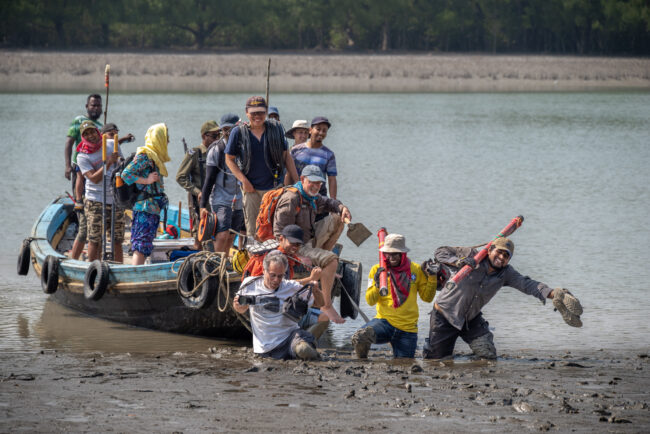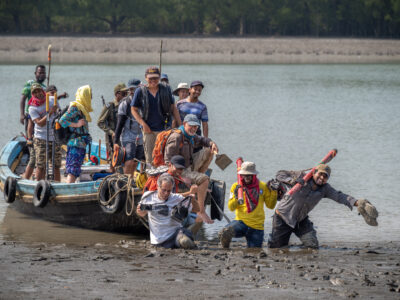water matters
Water Matters, the blog of the Columbia Water Center, focuses on the assessment, understanding and resolution of the potentially global crisis of freshwater scarcity.
-

Vast Freshwater Reserves Found Beneath Salinity-Stressed Coastal Bangladesh
Drinking water is often scarce in Bangladesh. These researchers have tapped into a potential solution.
-

A Disaster Expert Explains Why the Texas Floods Were So Devastating
A warning system, which might involve integrating older technology like weather radios with new AI products and local knowledge, is key to preventing future loss of life.
-

How AI Is Revolutionizing the Recycling Industry
Modern waste facilities are incorporating AI into their systems, using robots guided by AI vision systems and machine learning algorithms, high resolution cameras, hyperspectral imaging, near-infrared sensors and predictive analytics.
-

Leveraging the Power of Open Source Data To Map the World’s Oceans
In honor of World Oceans Day, marine geophysicist Vicki Ferrini discusses the current state of ocean research, and the important role international collaboration plays in this field.
-

Science for the Planet: Tackling the Invisible Threat of Nanoplastics
Beizhan Yan, an environmental geochemist at the Lamont-Doherty Earth Observatory, has come up with new methods to detect and analyze tiny plastic particles to better understand their impact on human and environmental health.
-

Mangroves, Tigers and Shopping
The last part of our trip was a whirlwind of seeing multiple sites in the Sundarbans mangrove forest and its wildlife, more interviews with villagers, historic and cultural sites and shopping, followed by tearful goodbyes.
-

Poets and Polders
Continuing on our journey, we visited the shrine and former home of Bangladeshi cultural icons, continued our interviews, and boarded a boat to take us to the embanked islands known as polders.
-

A Special Trip to Bangladesh
In Bangladesh, a large and growing population lives in one of the most dynamic and sensitive environments on Earth, subject to multiple natural disasters and threatened by climate change.
-

World Water Film Festival Makes a Splash at Columbia Climate School
The event featured films and speakers from around the world who spotlighted humanity’s essential relationship with water and how it continues to evolve in our changing climate.

By studying thousands of buildings and analyzing their electricity use, Columbia Climate School Dean Alexis Abramson has been able to uncover ways to significantly cut energy consumption and emissions. Watch the Video: “Engineering a Cooler Future Through Smarter Buildings“
